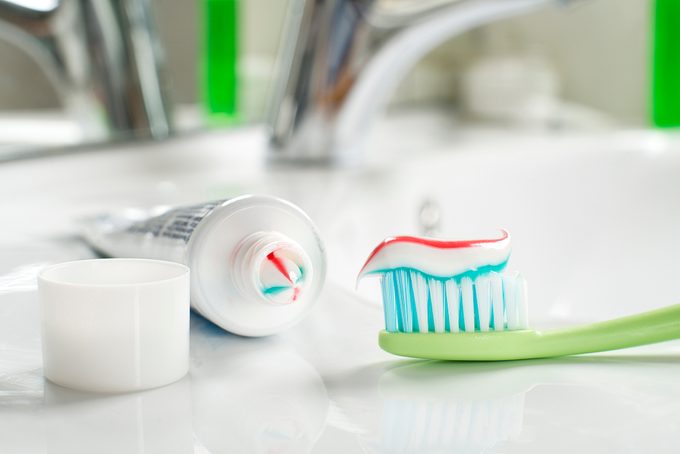New Research: This Surprising Tool Is the #1 Best Way to Prevent Pneumonia
Updated: Feb. 13, 2024

We hope your a hospital stays are few and far between—but Harvard researchers have pinpointed an unexpected item that's impacting wellness outcomes for admitted patients.
In a time when healthcare organizations are trying to prevent patient infections at the hospital while simultaneously cutting costs, a team of doctors have narrowed in on one remarkably common device that may help keep patients safe.
Says Michael Klompas, MD, and infectious disease doctor and professor at Harvard Medical School: “It’s rare in the world of hospital preventative medicine to find something like this that is both effective and cheap.” Dr. Klompas recently helped lead a study that’s been published in the peer-reviewed journal JAMA Internal Medicine in December 2023 and adds in a press release, “Instead of a new device or drug, our study indicates that something as simple as brushing teeth can make a big difference.”

The research team conducted a comprehensive review and meta-analysis, sifting through 15 randomized clinical trials that involved 2,700 patients worldwide.
Their analysis highlighted a clear link: Patients who engaged in daily toothbrushing faced significantly lower risks of developing hospital-acquired pneumonia, a type of lung infection, and even had lower mortality rates in the intensive care unit (ICU). According to researchers, this may be because brushing your teeth reduces the amount of bacteria in your mouth.
“The signal that we see here toward lower mortality is striking,” Dr. Klompas remarked. “It suggests that regular toothbrushing in the hospital may save lives.”
Additionally, the findings indicated that using a toothbrush could lead to fewer days of mechanical ventilation and a shorter ICU stay.
7 Habits That Secretly Annoy Your Doctor
Beyond the ICU
While most of the analyzed studies focused on the impact of toothbrushing among adults in the ICU, the team is optimistic about its benefits extending to non-ICU patients as well. However, there’s a call for further research to explore these potential effects fully.
Dr. Klompas and his team advocate for implementing oral health routines for all hospitalized patients, emphasizing toothbrushing as a key component. For patients unable to brush their teeth independently, they suggest that care team members assist.
For more wellness updates, subscribe to The Healthy @Reader’s Digest newsletter and follow The Healthy on Facebook and Instagram. Keep reading:

















